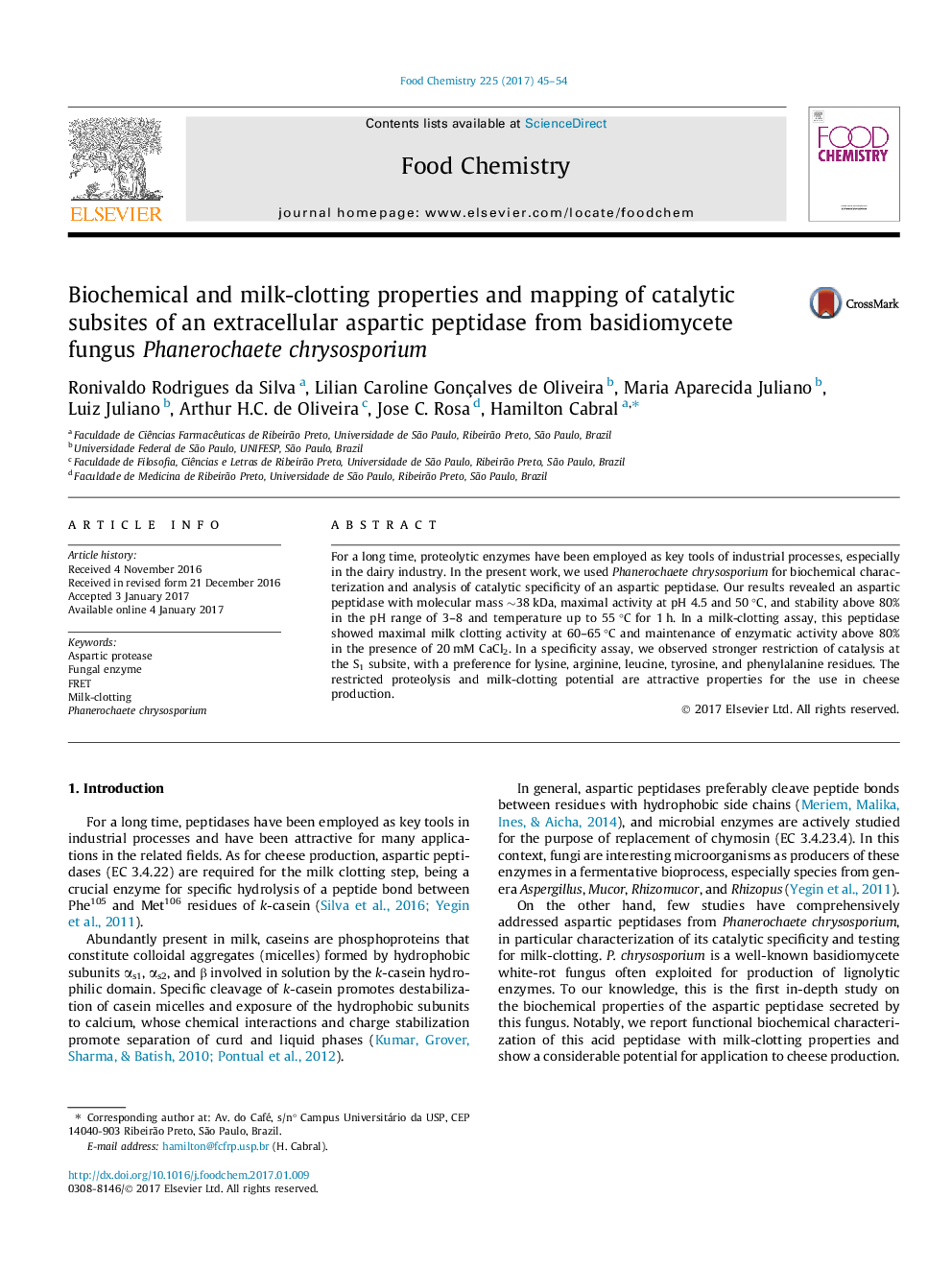| Article ID | Journal | Published Year | Pages | File Type |
|---|---|---|---|---|
| 5133901 | Food Chemistry | 2017 | 10 Pages |
â¢Absence of proteolysis at alkaline pH.â¢Aspartic peptidase and its potential to milk clotting.â¢Mapping of catalytic subsites and on usefulness for cheese production.â¢Phanerochaete chrysosporium-secreted acidic peptidase.
For a long time, proteolytic enzymes have been employed as key tools of industrial processes, especially in the dairy industry. In the present work, we used Phanerochaete chrysosporium for biochemical characterization and analysis of catalytic specificity of an aspartic peptidase. Our results revealed an aspartic peptidase with molecular mass â¼38 kDa, maximal activity at pH 4.5 and 50 °C, and stability above 80% in the pH range of 3-8 and temperature up to 55 °C for 1 h. In a milk-clotting assay, this peptidase showed maximal milk clotting activity at 60-65 °C and maintenance of enzymatic activity above 80% in the presence of 20 mM CaCl2. In a specificity assay, we observed stronger restriction of catalysis at the S1 subsite, with a preference for lysine, arginine, leucine, tyrosine, and phenylalanine residues. The restricted proteolysis and milk-clotting potential are attractive properties for the use in cheese production.
